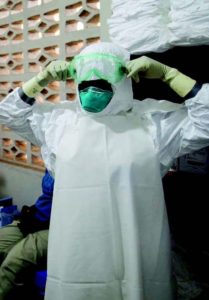Evaluating risk and caring for missionaries
AfriGO Team
Risk is part of life, whether we stay home or become a missionary. And yet the parts of the world where Christ remains unknown are mostly the more dangerous ones. And Jesus told us that trouble would be a part of life. While we are not told to seek trials, the Bible teaches us how to respond to them when they come. Well responded to, trials strengthen our faith, deepen our knowledge of God, prepare us for empathetic ministry and, as God weaves our trials into his strategy, advance his missionary cause.
Early missionaries counted the cost before they set out. In fact, they took their coffins with them! Falling prey to diseases – for which there were no vaccinations – or to attacks by hostile inhabitants, they unintentionally became the first short-term missionaries. Lives sacrificed through taking the gospel to inhospitable places fell as precious seeds that germinated, grew and produced harvests of souls.
Sometimes, even when a threat has been recognized, a worker is willing to sacrifice her life for Christ and his greater cause.
Our world is just as dangerous, in different ways, as that of the early missionaries. But we now understand the necessity and responsibility of caring for missionaries, God’s most valuable resource. The Lord is raising up a new generation of workers, from Africa and other parts of the world, who have known great suffering. Through it they have learned lessons that will help them thrive and bear fruit in difficult mission fields. But before setting out, every prospective mission worker, with help from his church and mission agency, should: 1) evaluate the risks; and 2) ensure he is adequately equipped and supported.
Known or calculated risk
This type of risk includes doctors and nurses who choose to stay and care for patients infected with the Ebola virus. It also includes missionaries who remain in areas of political upheaval, where spiritual attack is strong, or where there is no nearby medical help. In prayer and in discussion with mission and church leaders, a worker makes a calculated decision to take these risks for the sake of those dying without the gospel. However, responsible action in the face of a known risk could mean deciding not to send a new, inexperienced medical worker into a deadly pandemic.
Unexpected or accidental risk
Road accidents, terrorist attacks, robbery, kidnappings and sudden illness cannot be predicted. These things occur even if we stay in our own town. We will need to draw upon his strength, share the burden with others, and willingly allow Him to fulfill his purposes through it. If we are following his calling for our lives, we can claim the promise that all will work together for good, even traumatic experiences (Romans 8.28).
Some are tempted to leave the field when catastrophe strikes, especially in their first term. But with adequate care, their service does not have to be cut short. Remember that significant ministry is preceded by significant refining.
Honourable risk
As she provided medical help in a clinic in Lebanon, a Christ-like, faithful and fruitful young missionary wife was shot dead. At her memorial service, filmed by news agencies from around the world, her husband powerfully preached the gospel to an audience in Lebanon and around the Middle East, declaring that he forgave his wife’s murderer because Jesus had forgiven him. Following his message, all of her missionary colleagues rose to their feet and rededicated themselves to their missionary task, asking Jesus to make them even bolder to take his message to those who had not yet heard it, no matter what the cost, because only this message could bring hope to a lost world.
Reckless risk
Some risk is reckless. Students who tried to cross an international African border without the necessary documents were refused entry. They claimed that they were being persecuted for their faith, when actually they were being punished for disregarding the law. Another example is a medical missionary who risks becoming HIV positive by failing to take the necessary medicine after a needle-stick injury. A missionary who misses several consecutive nights of sleep can expect serious health problems. And one who neglects his spiritual life will not withstand temptation. When we take reckless risks, we cannot claim that we are being persecuted for Christ’s sake.
Who should care for a missionary?
The worker is responsible to maintain good physical, mental and spiritual health in order to deal with demanding situations.
The sending church should pray faithfully, send regular financial support, encourage their missionaries often, and care for families. In this way they can thrive in their place of ministry and at home. A pastor’s visit can mean welcome counsel for long-distance workers.
The mission agency should take good care of missionaries. Those being sent should evaluate different sending bodies and choose one that will do everything possible to look after and protect them/their family.
Co-workers and local believers should offer practical care. This demonstrates Christ’s compassion to unbelievers. Carry one another’s burdens!
No matter how well prepared a worker is, he will come under attack. But God is in control.
Whether He rescues the missionary, allows trauma and suffering to continue, or allows him to lay down his life, God will bring good out of what his enemies intended for evil.
Remember that God is leading, and He will provide people to come alongside at difficult times.
Good pastoral care helps a worker to come through trials stronger, more mature and experienced. A team working together to ensure the wellbeing of the missionary allows God’s Kingdom to advance.

